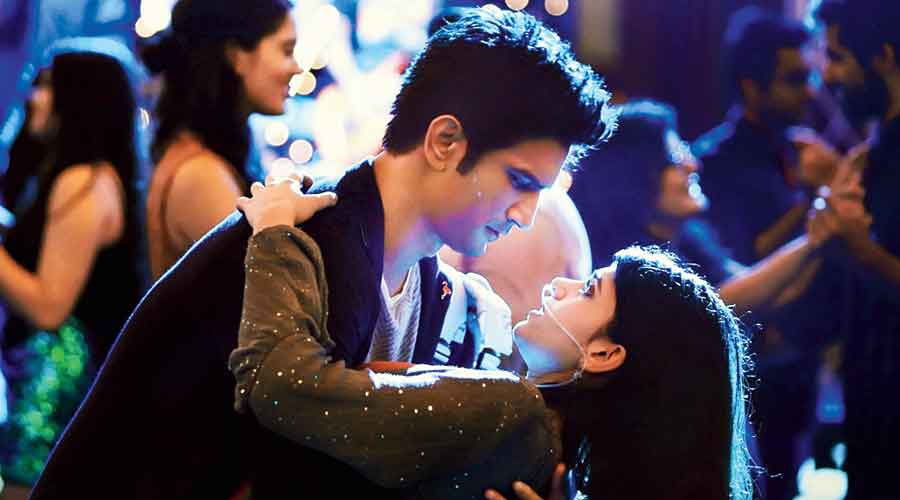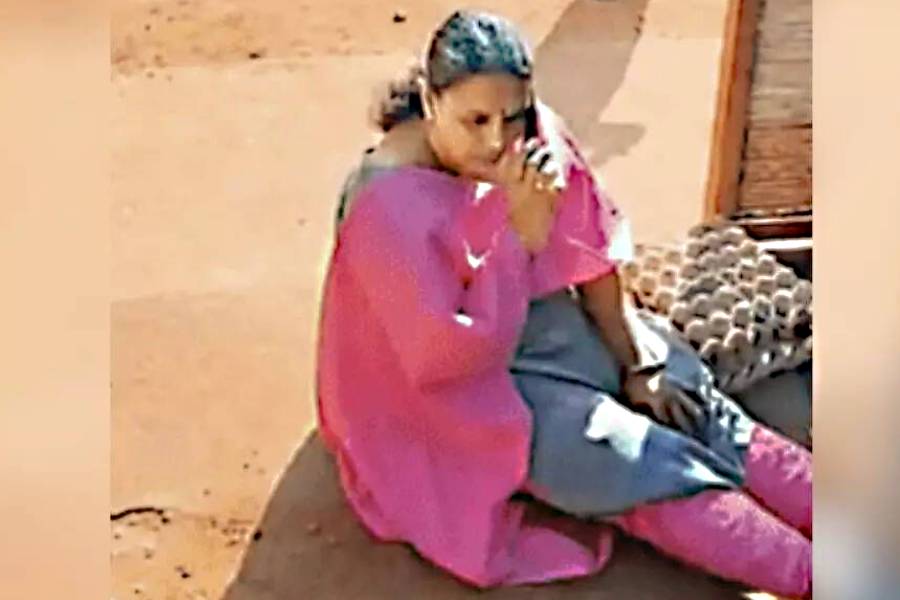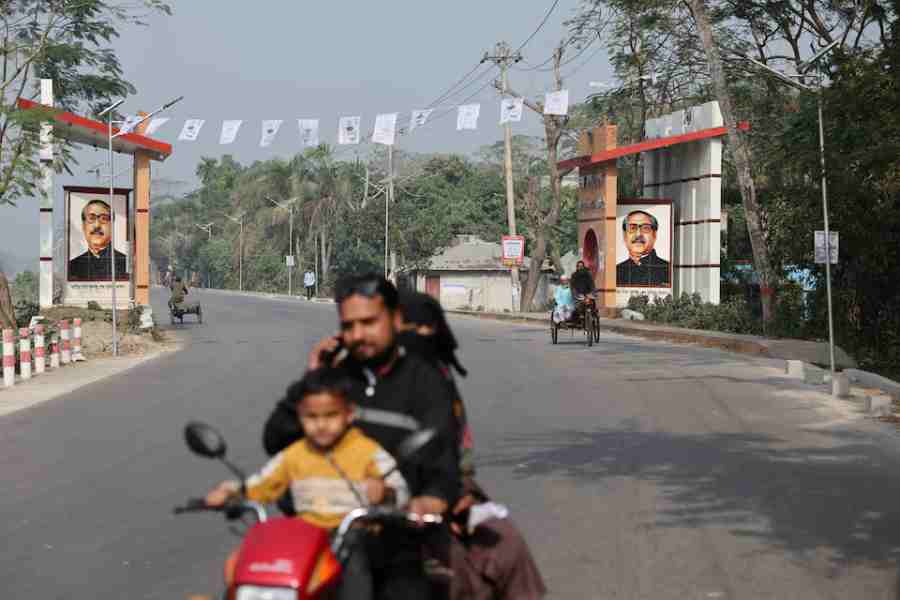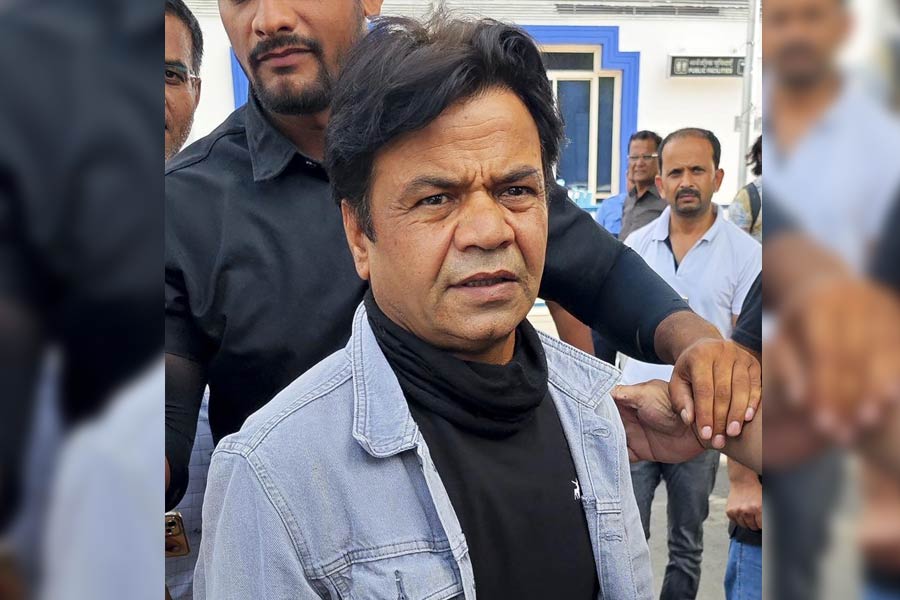This is supposed to be a review. But what does one write about a film that has, in many ways, become more than just a film? By the time these words appear in front of you, you would have watched Dil Bechara, perhaps more than once. Or maybe you are pacing it out as a slow, staggered watch because there’s only that much heartache that our bechara dil, already battered by Covid and circumstance, can take. Either way, this review will not decide whether you will watch or give Dil Bechara a miss. The tragedy that surrounds the film — and also forms the crux of it — has already decided that for you.
In The Fault in our Stars, the 2014 Young Adult weepie that Dil Bechara is an official adaptation of and which, in turn, is based on the eponymous John Green bestseller, there is a moment where Hazel Grace (Shailene Woodley), while ‘rehearsing’ her eulogy for “the love of my life” Augustus Waters (Ansel Elgort) says, “Ours was an epic love story, and I won’t be able to get more than a sentence into it without disappearing into a puddle of tears”. ‘A puddle of tears’ is perhaps the only way to sum up what each of us felt when we watched Sushant Singh Rajput, for the last time, in Dil Bechara. The lump in the throat and the stifled sob didn’t just come on towards the end when we watched his Manny quietly slip away... it was there in every moment of the film — when he danced, when he joked, when he romanced, when he smiled the Sushant smile, when he was alive on screen. It came with the realisation that we will never see him like that again. His opening scene, a nod of sorts to Sushant’s idol Shah Rukh Khan’s entry in the iconic film Dilwale Dulhania Le Jayenge, especially pushes one’s buttons. It is, at once, both ‘hello’ and ‘goodbye’.
This is supposed to be a review of Dil Bechara. But in this case, how does one separate the art from the artiste? Or the artiste from his personal tragedy? Especially in a film made calamitous by circumstance where everything, filmed over a year ago but released just a month after its leading man’s tragic passing, is tinged with a deep sense of foreboding.

How does one separate the art from the artiste? Or the artiste from his personal tragedy? Sourced by The Telegraph
You feel it when Immanuel Rajkumar Junior aka Manny cracks a joke but you spy the vacant look in his eyes, living as he is on borrowed time after losing a leg to cancer. When Manny says, “I am a fighter and I fought well” or “Can we just pretend that I am not dying?” or “Janam kab lena hain aur kab marna hain yeh hum decide nahin kar sakte, par kaise jeena hain hum decide kar sakte hain” or “Main bahut bade bade sapne dekhta hoon, lekin unko poore karne ka mann nahin karta”, it’s impossible to process those lines in isolation. Once the film ends, you even ponder over the words on his T-shirts (‘Help’ to ‘So close yet so far’). Reading too much into it, you think? Well, did someone once say something about truth being stranger than fiction?
Which brings us to Dil Bechara. Which, in a way, is all Sushant. The film’s leading lady, like the original, has the author-backed role and Sanjana Sanghi, as Kizie Basu who struts along an oxygen cyclinder and is counting her days afflicted with thyroid cancer, does a spectacular job, but we watch only Manny. He turns on the impish charm, he smiles a smile that hovers somewhere between a smirk and a full-toothed grin, and he brings to life a young man who knows his end is near, but he wants to live in the moment. Manny seeks infinity within his numbered days and he teaches the initially uptight Kizie to do the same. The two laugh through prom night, segway their way through the night streets of Paris and hold each others’ hands through emergency visits to the hospital, well aware that all of it comes with an expiry date. It’s a plot and premise that comes with the default setting of teasing your tear ducts and Dil Bechara, after a point, becomes uncomfortably prophetic. That scene of Manny smiling through his tears as he attends his own ‘funeral’ is especially painful. “That’s the thing about pain... it demands to be felt”.
But we always knew that this was going to be a rough watch, and debutant director Mukesh Chhabra does well in layering the heartbreaking core with heartwarming moments between Kizie and her parents. Saswata Chatterjee and Swastika Mukherjee both lend much more to their characters than what we suspect was written on paper, humanising parts that could have well degenerated into stereotypes. Swastika has a beautiful mother-daughter moment with Sanjana in Paris, Saswata and Sushant’s heartfelt chat over bottles of beer as the rain comes pelting down is one of the best scenes in the film. Another big winner is A.R. Rahman’s music, the maestro scoring a number to suit almost every mood and moment of the film.
But Dil Bechara, ultimately, falls short of what it could have been. It’s a rare Bollywood film that’s shorter in screen time than its Hollywood counterpart, and the creases show up more often than not. Characters are glossed over (Saif Ali Khan’s bad boy musician cameo, so well defined and enacted by Willem Dafoe in the original, is seriously a what-the-what, despite that deeply resonating line about his song being incomplete because “life is incomplete”) and the film’s rush to reach the finish line prevents it from building its world in a way that would have made it more immersive.
But Dil Bechara, as we said at the beginning, is now no longer a film, it’s an emotion for many. Even my otherwise stoic heart did a flip-flop when Manny, somewhere towards the end, looks straight into the camera and smilingly asks, “Seri?” Seri, Sushant. Godspeed. Thank you for the movies.










